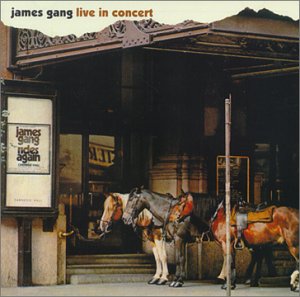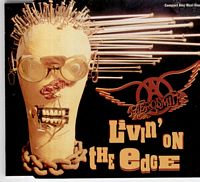
Heart is an American rock band formed in 1973 in Seattle, Washington. The band evolved from previous projects led by founding members Roger Fisher (guitar) and Steve Fossen, including The Army (1967–1969), Hocus Pocus (1969–1970), and White Heart (1970–1973). By 1975, original members Fisher, Fossen, and Ann Wilson, along with Nancy Wilson, Michael Derosier (drums), and Howard Leese formed the lineup for the band's initial mid- to late-1970s success period. These core members were included in the band's 2013 induction into the Rock and Roll Hall of Fame.

Joseph Fidler Walsh is an American guitarist, singer, and songwriter. Best known as a member of the rock band Eagles, his five-decade career has also included solo work and stints in two other successful rock bands: James Gang and Ringo Starr & His All-Starr Band. He was also part of the New Zealand band Herbs. In the 1990s, he was a member of the short-lived supergroup the Best.

"Life's Been Good" is a song by American singer-songwriter and multi-instrumentalist Joe Walsh that first appeared on the soundtrack to the 1978 film FM. The original eight-minute version was released on Walsh's fourth studio album But Seriously, Folks... (1978), and an edited four-minute single version peaked at No. 12 on the US Billboard Hot 100, remaining his biggest solo hit.

"I Can't Tell You Why" is a song by the American rock band Eagles that appeared on their 1979 album The Long Run. It was written by band members Timothy B. Schmit, Glenn Frey and Don Henley. Recorded in March 1978, it was the first song finished for the album and the first Eagles song to feature Schmit on lead vocals. Released as a single in February 1980, it became a Billboard top 10 hit in April, reaching number eight on the Billboard Hot 100 and number three on the Adult Contemporary chart. It was the group's last top ten hit on the Billboard Hot 100.

"Rock and Roll All Nite" is a song by American rock band Kiss, originally released on their 1975 album Dressed to Kill. It was released as the A-side of their fifth single, with the album track "Getaway". The studio version of the song peaked at No. 69 on the Billboard singles chart, besting the band's previous charting single, "Kissin' Time" (#89). A subsequent live version, released as a single in October 1975, eventually reached No. 12 in early 1976, the first of six Top 20 songs for Kiss in the 1970s. "Rock and Roll All Nite" became Kiss's signature song and has served as the group's closing concert number in almost every concert since 1976. In 2008, it was named the 16th greatest hard rock song of all time by VH1.

Live in Concert is a live album by the James Gang, released in September 1971. It contains highlights of a May 15, 1971 performance at Carnegie Hall, New York City. This album is the last James Gang release to feature Joe Walsh as guitarist and vocalist and Bill Szymczyk as producer and engineer. The album reached Gold status in June 1972.

Thirds is the third studio album by the American rock band James Gang. The album was released in mid 1971, on the label ABC Records. It is the last studio album featuring Joe Walsh. "Walk Away" was released as a single, making the Top 40 on at least one national chart, reaching #51 on the Billboard Hot 100, the best placement of a James Gang single. The album reached Gold status in July 1972.

"Livin' on the Edge" is a song by American hard rock band Aerosmith. The song was written by Steven Tyler, Joe Perry, and Mark Hudson. It was released in March 1993 by Geffen Records as the first single from the band's commercially successful eleventh album, Get a Grip (1993). The single reached number 18 on the US Billboard Hot 100 chart, number three on the Cash Box Top 100, and number one on the Billboard Album Rock Tracks chart, where it remained for nine weeks. In the UK, the song peaked at number 19 on the UK Singles Chart in April 1993.

"Heartache Tonight" is a song written by Don Henley, Glenn Frey, Bob Seger and J. D. Souther, recorded by the Eagles and features Glenn Frey on lead vocals. The track was included on their album The Long Run and released as a single in 1979. It reached No. 1 on the U.S. Billboard Hot 100 in November of that year and was certified Platinum by the Recording Industry Association of America representing one million copies sold. It was the Eagles' final chart-topping song on the Hot 100.

"Take It Easy" is the debut single by the American rock band Eagles, written by Jackson Browne and Eagles band member Glenn Frey, who also provides lead vocals. It was released on May 1, 1972, and peaked at No. 12 on the Billboard Hot 100 chart on July 22, 1972. It was also the opening track of the band's eponymous debut album and has become one of their signature songs, included on all of their live and compilation albums. It is listed as one of The Rock and Roll Hall of Fame's 500 Songs that Shaped Rock and Roll.

"Take It to the Limit" is a song by the Eagles from their fourth album One of These Nights from which it was issued as the third single on November 15, 1975. It reached No. 4 on the U.S. Billboard Hot 100 and was also the Eagles' greatest success to that point in the UK, going to No. 12 on the charts. Billboard ranked it as the No. 25 song for 1976.

"Life in the Fast Lane" is a song written by Joe Walsh, Glenn Frey and Don Henley, and recorded by American rock band Eagles for the band's fifth studio album Hotel California (1976). It was the third single released from this album, and peaked at No. 11 on the Billboard Hot 100.

"The Long Run" is a song written by Don Henley and Glenn Frey and recorded by the Eagles. The sound of the song is viewed as a tribute to the Stax / Memphis rhythm and blues sound. It was the title track of their album The Long Run and was released as a single in November 1979. It reached No. 8 on the U.S. Billboard Hot 100 in early 1980. It was the second of three singles released from The Long Run album, preceded by "Heartache Tonight," which reached No. 1 on the Billboard Hot 100 in November 1979, and followed by "I Can't Tell You Why," which also reached No. 8 on the Billboard Hot 100, in the spring of 1980.

"Love Will Keep Us Alive" is a song written by Jim Capaldi, Paul Carrack, and Peter Vale and produced by the Eagles, Elliot Scheiner, and Rob Jacobs. It was first performed by the Eagles in 1994, during their Hell Freezes Over reunion tour, with lead vocals by bassist Timothy B. Schmit. This is the last single to feature Don Felder, who was terminated from the band in 2001.
"Let It Rock" is a song written and recorded by rock and roll pioneer Chuck Berry. Chess Records released it as single, which reached number 64 on the U.S. Billboard Hot 100 chart in February 1960. Chess later added it to Berry's album Rockin' at the Hops (1960). In 1963, Pye Records released it as a single in the UK, where it reached number six.

"Never My Love" is a pop standard written by American siblings Don and Dick Addrisi, and best known from a hit 1967 recording by the Association. The Addrisi Brothers had two Top 40 hits as recording artists, but their biggest success as songwriters was "Never My Love". Recorded by dozens of notable artists in the decades since, in 1999 the music publishing rights organization Broadcast Music, Inc. (BMI) announced it was the second most-played song on radio and television of the 20th century in the U.S.

"Already Gone" is a song recorded by the American rock band the Eagles for their 1974 album On the Border. It was written by Jack Tempchin and Robb Strandlund and produced by Bill Szymczyk.

"Don't Mean Nothing" is the debut single by singer/songwriter/producer Richard Marx from his triple platinum 1987 eponymous album. It hit No. 1 on Billboard's Album Rock Tracks chart and No. 3 on the Hot 100. With the chart success of "Don't Mean Nothing" and subsequent singles from his debut album, Marx became the first male artist to reach the top three of the Billboard Hot 100 pop chart with four singles from a debut album.

"I'd Love to Change the World" is a song by the British blues rock band Ten Years After. Written by Alvin Lee, it is the lead single from the band's 1971 album A Space in Time. It is the band's only US Top 40 hit, peaking at number 40 on the Billboard Hot 100 and was also a top ten hit in Canada.

"Gone, Gone, Gone" is a song by English rock band Bad Company. The song was released as the second and final single from the band's fifth studio album Desolation Angels. The song peaked at #56 on the Billboard Hot 100 on August 25, 1979.



















